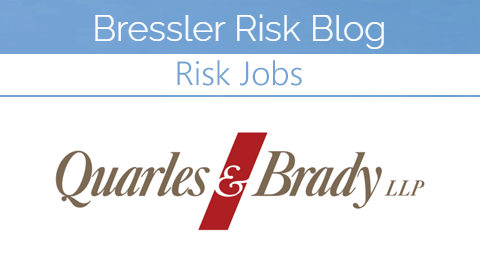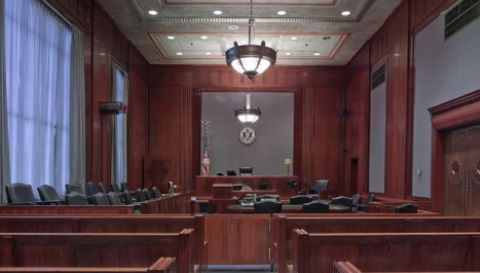OCG OD? — D.C. Court of Appeals Reshaping Reach of Outside Counsel Guidelines? A Look SRA Liability Limit Line
Posted on
“DC Moves Toward Array Of Ethics Rules Reforms” —
- “A submission now being readied for the D.C. Court of Appeals — the district’s final arbiter of lawyer discipline and ethics — to curb overreaching outside counsel guidelines also promises to jump-start similar reforms in other lawyer-heavy jurisdictions.”
- “‘Collectively, I expect the changes will have a holistic impact across many rules and areas of practices,’ said Hope Todd, associate director for legal ethics and regulation counsel at the District of Columbia Bar. ‘Of course, one end result will be a big rules education push, which is something the D.C. bar is used to doing.'”
- “It includes new guidance on the duty to tell clients about ‘outsourced’ legal work and the identities of contract attorneys. Another provision would strengthen Rule 1.6 on client confidentiality regarding the duty to safeguard clients’ electronic and other information.”
- “Amy E. Richardson, who heads the legal ethics and malpractice practice at Wiltshire & Grannis LLP, said the city’s legal community should also be watching a still-in-the-works rule proposal aimed at curtailing some of the more extreme components of outside counsel guidelines.”
- “Far-reaching corporate requirements on outside firms have been a simmering issue for the profession for years, as large clients have sought signed agreements that many lawyers believe force them to choose between adherence to ethics rules and signing new clients.”
- “Depending on the OCG, some of the contracts define the firm’s ‘client’ as any and all affiliates and subsidiaries of the company, or even any future affiliates, creating a broad potential conflict problem for firms. Others contractually block outside firms from representing any competitor at any time, even if that hypothetical future work is unrelated.”]
- “The most onerous OCG provisions require outside counsel to bear legal liability for any loss connected to the legal work, even in the absence of an error on the part of the lawyer.”
- “Richardson said the OCG issue is of particular interest to the D.C. legal community. The bar has an especially high concentration of lawyers working with large corporations, and includes many smaller regulatory practices that tend to work with many companies in the same industry.”
- “The bar’s draft report on OCGs from last November includes a long series of recommended rule changes meant to solidify lawyers’ independence and prevent attorneys from granting an ‘open-ended’ scope of conflicts of interest. A change to Rule 1.8 on specific conflicts would also prohibit lawyers from signing any indemnification provision that holds them responsible ‘for errors and omissions for which neither statutes nor common law impose liability.'”
- “Inevitably, there is a little more to this than can be encapsulated in a headline but
the issue is of major concern because it may apply to the terms of business commonly used by most large solicitors’ firms and many smaller firms.” - “It was alleged that on various dates between 2010 and 2014 the solicitor improperly sought to limit liability in respect of claims and/or limit the timeframe in which a claim could be made in breach numerous provisions of the Solicitors’ Code of Conduct 2007 (the 2007 Code) and the SRA Code of Conduct 2011 (the 2011 Code).”
- “In any event, should the SRA, through conduct rules, prevent solicitors from limiting their liability to the mandatory insurance limit? There may be many circumstances in which that level of cover is not available to meet a claim, for example –
- A) Multiple similar claims may be subject to a single limit of indemnity due to the operation of the aggregation clause, as the SRA will be only too well aware, having intervened in the leading case on the point in the Supreme Court, AIG Europe Ltd v Woodman [2017] UKSC 18 – and the facts of the present SDLT scheme case involved multiple similar instructions;
- B) Other policy exclusions may apply – developments are currently awaited on the extent of any cyber exclusion;
- C) A firm switches regulator after engaging the client – no other regulator’s compulsory insurance scheme is as extensive in policy limit or breadth of cover, and run off cover in particular is substantially less under other schemes;
- D) Solicitors may be exposed to liability for many years, even beyond the 15 year period provided by section 15B of the Limitation Act 1980, but insurance cover does not continue indefinitely – and the SRA has been resolute until now that the Solicitors Indemnity Fund must close.
- “By section 28 of the Legal Services Act 2007, the SRA is required to act in a manner which is proportionate. Can it be proportionate to prevent solicitors from limiting liability below the minimum insurance limit, when that figure is arbitrary because it may not in fact be available to meet a claim for any of a number of reasons, and adversely impacts a solicitor’s right to protection of property under Article 1 of the First Protocol of the European Convention on Human Rights? And no such provision applies to freelance solicitors, indeed no insurance is required at all unless they are conducting reserved legal activities, and even then it will not be on terms equivalent to the MTC. The time is now ripe for a review of the SRA restriction on limiting liability, and guidance on what is and is not considered appropriate.”










